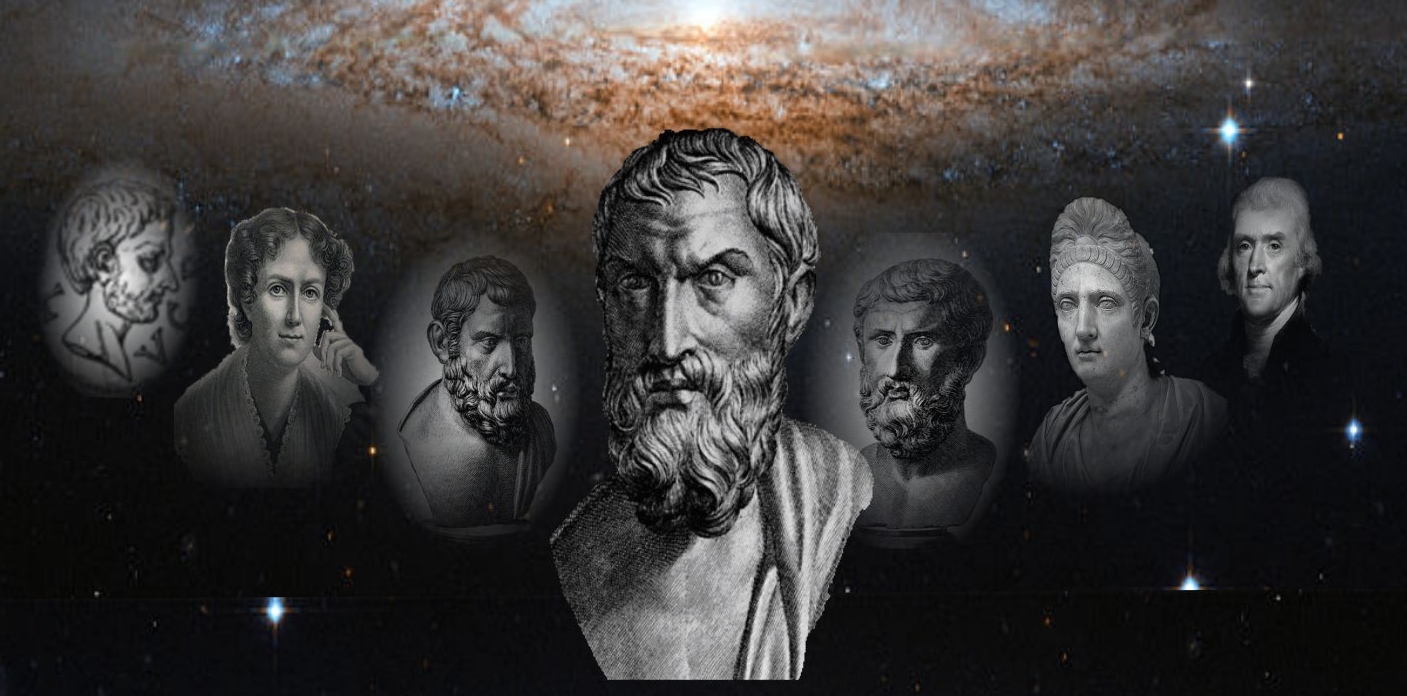“How Do I Most Quickly Learn The Basics Of Epicurean Philosophy?”
If you are new to the study of Epicurus, you may well ask: “How do I most quickly learn the basics of Epicurean Philosophy?” Here’s my quick answer, which might be thought of as the Jefferson path. This is a far better way than jumping straight into the doctrines and sayings without context as to what ties them together:
(1) Read the “I Too Am An Epicurean” letter of Thomas Jefferson to William Short. This brief letter, from a modern mind respected around the world, gives a trustworthy summary of why Epicurus is significant, along with an outline of the most important doctrines in Jefferson’s own words. The text of that letter is here: http://tinyurl.com/2ehn2a
(2) Jefferson refers in his letter to Cicero, the Roman statesman. Cicero mostly wrote against Epicurus, but in doing so he preserved one of the best ancient summaries of the issues at stake. Read the Epicurean side of the argument in “On Ends” here: http://tinyurl.com/lbocopl
(3) After those two brief documents, you’re ready for a book Jefferson praised highly: Frances Wright’s “A Few Days In Athens.” This brief fictional story shows how Epicurus fits in with, opposed, and reformed the views of other Greek philosophers who came before him. This can be read or listened to in only a few hours, and is available here: http://AFewDaysInAthens.com
(4) The above three give you the background you need to tackle the most important document left to us from the ancient world: the biography of Epicurus written by Diogenes Laertius. This document contains most of the letters and writings from Epicurus himself that survive, and it is the main source for most of the reliable information we have about Epicurean philosophy . This is available here:http://tinyurl.com/ozyxm9w
(5) For the best modern detailed treatment of the full scope of the philosophy, look to Norman DeWitt’s “Epicurus and His Philosophy.” A preview is here http://tinyurl.com/nbfh3do but the best way to obtain is at a library or used book source such as this: http://tinyurl.com/nll278o
(6) For the best ancient detailed treatment of the views of Epicurus, look to Lucretius’ “On the Nature of Things” available here: http://tinyurl.com/m7r9ayu
To end and complement this list there are many excellent websites. Here are a few:
www.ElementalEpicureanism.com
and other listed at www.EpicurusCentral.wordpress.com
PS – The second sentence in Chapter One of “Epicurus And His Philosophy” is: “At the very outset the reader should be prepared to think of him [Epicurus] at one and the same time as the most revered and the most reviled of all founders of thought in the Graeco-Roman world.” Everyone needs to understand this, and that there are two takes on Epicurus: (1) the friendly tradition that seeks to understand Epicurus’ views and present them as he would himself, and (2) the unfriendly tradition that opposes Epicurus because they adhere to one of the religions or philosophies Epicurus opposed. Unfortunately the unfriendly tradition is at least 90% of what most people read on Wikipedia and the standard sources who are endorsed and blessed by leading establishment thinkers. There is much that is helpful to read in the unfriendly tradition, but you’ll never know what Epicurean Philosophy was really all about until you read it in the words of those who understand and agree with it. The best of the friendly tradition is what I have included in my list as the place to start.

